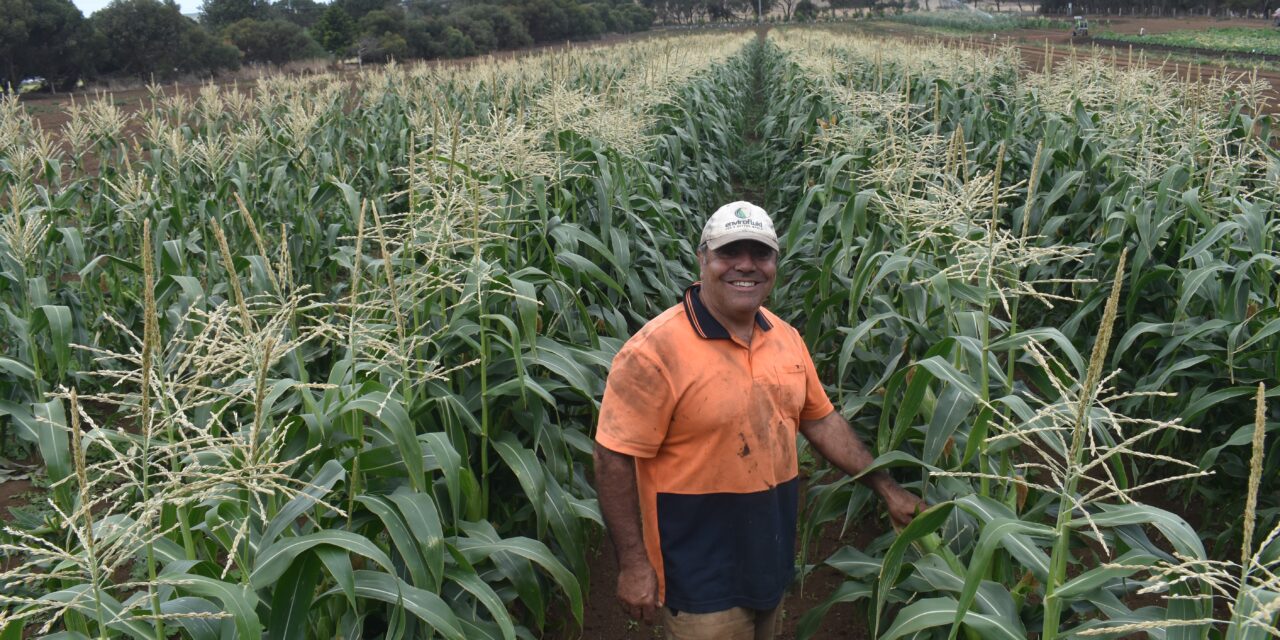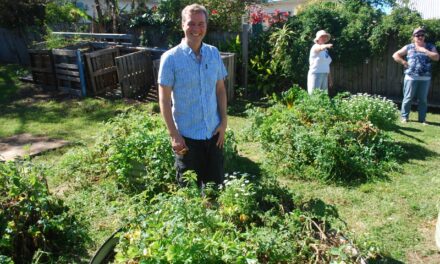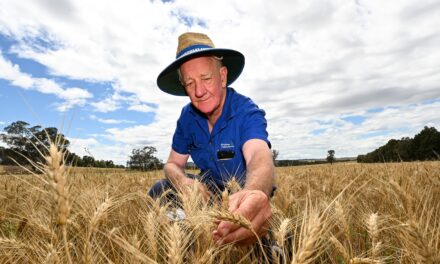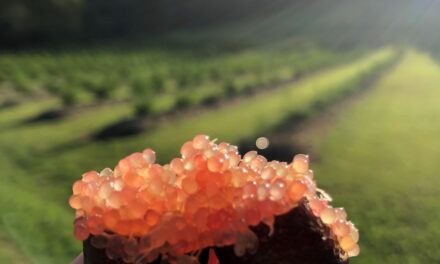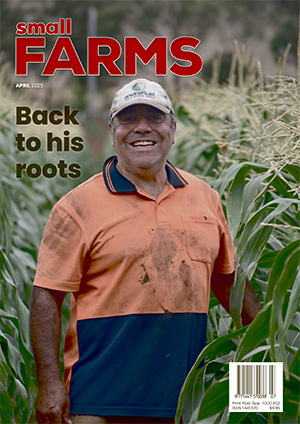A yearning to get his hands dirty led Reno Muscat to buy a parcel of land and grow a commodity not usually seen on a commercial scale in his part of the country. Now, life is pretty sweet. RICK BAYNE has the story.
Reno Muscat has gone back to his roots.
As a youngster, Reno loved to help out at his father’s market garden in Sydney, and despite spending many years working in real estate and HR, he dreamed of one day getting his hands dirty again.
A 2ha block of land near Tower Hill, west of Warrnambool in south-west Victoria, gave him that opportunity.
“My dad was a Maltese migrant and he and his brothers set up a market garden in the Hawkesbury area in western Sydney,” Reno recalled.
“From when I was three or four until my late teens, I worked on the farms on weekends helping out. I always had a desire to get back into it at some point.”
He’s now known locally as the “sweet corn guy” and his Tower Hill Farm is making a splash with a commodity not usually grown on a commercial scale in the region.
“It got to the point that I had the funds available to buy a small parcel of land and I wanted something decent,” Reno said.
“I’m from Queensland and we looked at land up north, but from a market garden point of view, it wasn’t very viable. The land is more costly and you don’t get the quality of the seasons that you get down here.
“This was vacant land, just being used for a bit of cattle grazing. I knew it was an old potato and onion producing area and so I knew it would be generally good quality volcanic soil (not too far from the extinct volcano Tower Hill).”
His first two seasons went to plan. This season has been dry, although irrigation from bore water has helped.
“Sweet corn generally likes temperatures above 25 degrees and this year has been consistently warm, even though it’s dry,” Reno said.
Reno knew neighbouring blocks could access bore water and he was happy to find the source.
“We had to figure out if we had water available, so we dropped a bore and found it,” he said.
“Once we had water, I could set up the tank and irrigation system, and I knew what machinery would be required from my days working with my father.
“For a parcel of land this size, all I need is a small utility tractor and various implements.”
Reno does seasonal work at Tower Hill Farm through spring and summer to service local markets. Sweet corn planting starts in October and finishes in May, while garlic grows through winter.
“I’ll have the garlic in the ground in April-May and just have to be there once a month to look after it,” he said.
He also has a mix of small crops to sell at his main outlet, the Port Fairy community market, including butternut pumpkin, zucchini, cucumber and tomatoes when they’re in season.
“I grow what I can to provide a bit of variety at the market, but sweet corn is the primary product,” Reno said.
“They know me as the sweet corn guy.”
As the only significant grower of sweet corn in the region — as opposed to dairy farmers growing maize — Reno is starting to develop a network with local hotels.
“I like sweet corn and did some soil testing and although the season is relatively short, I thought it would grow well over summer, and it has,” he said.
The corn is planted in shifts or patches — successive planting sets — and in rows. The sets are usually planted a couple of weeks apart so there’s a constant supply of fresh product.
Reno usually has about eight rows and six patches but has only done five patches this year, reflecting the dry season.
The corn must be re-planted every year and each plant produces two cobs.
Sweet corn is best when freshly picked.
“After three or four days off the cob, it will start losing flavour because the sugar will turn to starch,” Reno said.
“Within a week, if it’s not well refrigerated, it will taste fairly bland.
“The shops are generally okay, but they are likely to be at least a week old and have been refrigerated. I can get it to my customers within 24 hours and hence I have repeat customers.”
There are about 20 different varieties of corn, all with slight taste variations.
Reno buys seeds from Melbourne and this year is focusing on Invictus and Endurance varieties, both promising a good quality cob and a strong and vigorous plant.
Reno is happy to be back working in his roots.
“I enjoy it, it’s beautiful,” he said.
But he has no plans to expand.
“I don’t need to grow any bigger. Margins are fairly tight for a small weekend market, so it would be pointless having more volume if you can’t sell it,” he said.
“It’s the same for hiring staff — they’d just cut into those tight margins.
“It’s manageable by myself. I’ll keep working here happily for the next 10 years.”
Back to his roots
